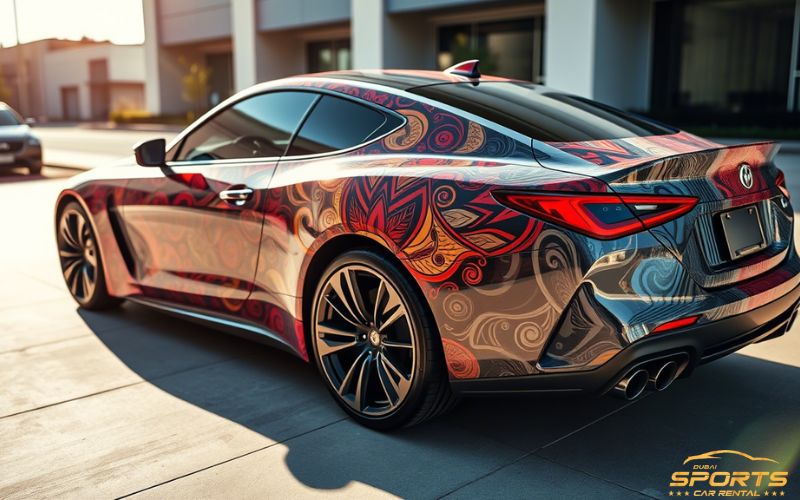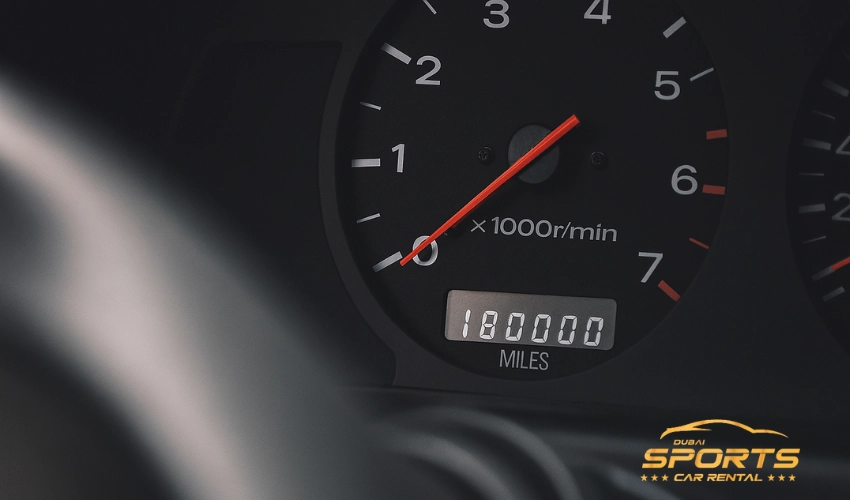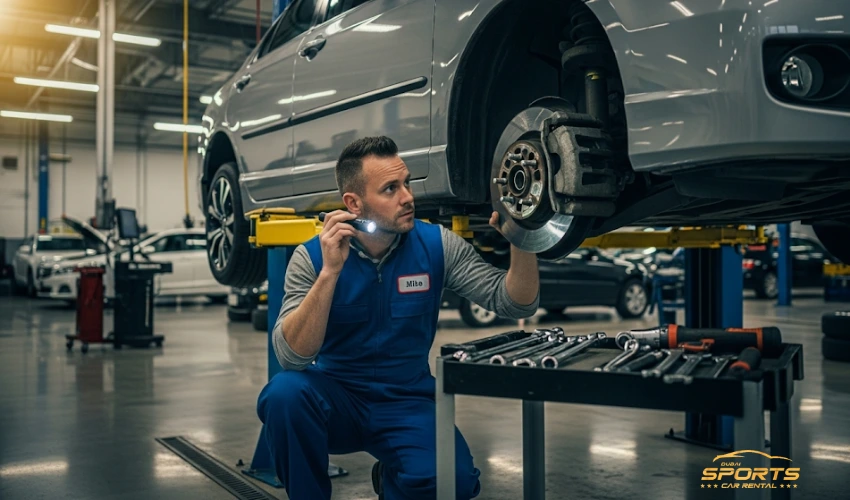Cost Breakdown of Car Wrapping Components
- Vinyl Material: $5–$15 per square foot / AED 120–600 per square meter, depending on quality and type.
- Labor Charges: $3–$4 per square foot / AED 50–150 per square meter, influenced by vehicle complexity and installer expertise.
- Design Customization: Adds $500–$3,000 / AED 2,000–10,000 for logos, patterns, or specialty finishes like carbon fiber or chrome.
- Vehicle Preparation: $200–$500 / AED 750–1,800 for cleaning, surface repairs, and trim removal.
- Wrap Removal (if needed): $300–$800 / AED 1,100–3,000 for stripping existing wraps.
- Warranty and Maintenance: Premium wraps often include warranties (3–10 years), adding value but increasing upfront costs.
What factors influence the cost of a car wrap?
Car wrap costs depend on vehicle size, material quality (premium vinyl costs 2-3x standard), design complexity, such as custom graphics add 20% to 40%, and labor (complex vehicles like Mercedes G-Class require 2.2x base labor rates). Geographic location and installer expertise also affect pricing.
How long does it typically take to wrap a car?
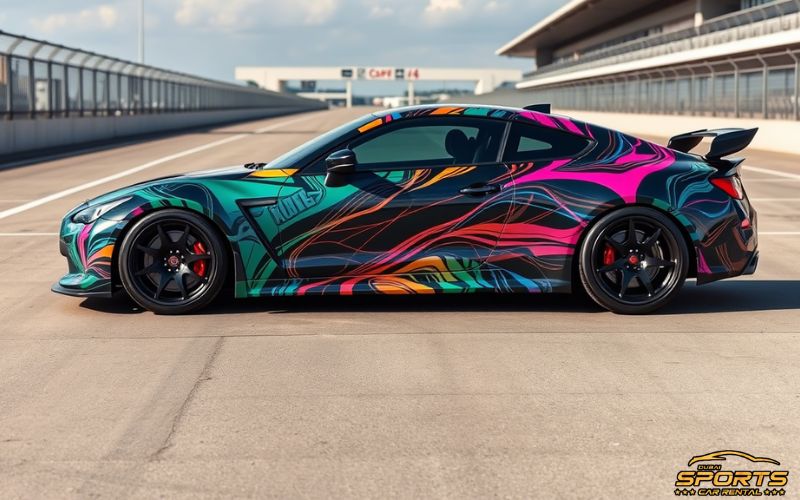
Full vehicle wraps typically require 2–5 days from start to finish, combining 6–20 hours of active installation with critical adhesion periods. Compact cars like Honda Civics often complete in 1–2 days, while luxury SUVs (e.g., Mercedes G-Class) or angular designs (Tesla Cybertruck) demand 3–5 days due to intricate panel work.
Preparation (4–6 hours):
- Thorough cleaning with isopropyl alcohol to remove contaminants
- Removal of mirrors, door handles, and trim (adds 1–2 hours)
- Surface repairs for scratches/dents (variable time)
Vinyl Application (6–20 hours):
- Professional teams use center-to-edge techniques, heat guns for contouring, and precision cutting for features like BMW grilles.
- Complex curves on Porsche 911s add 3–5 hours versus flat-panel vans.
Post-Installation (Overnight + 2–3 hours):
- 12–24 hour adhesion period in climate-controlled environments
- Final quality checks for bubbles/alignment and part reattachment
What are the differences between standard and premium vinyl wraps?
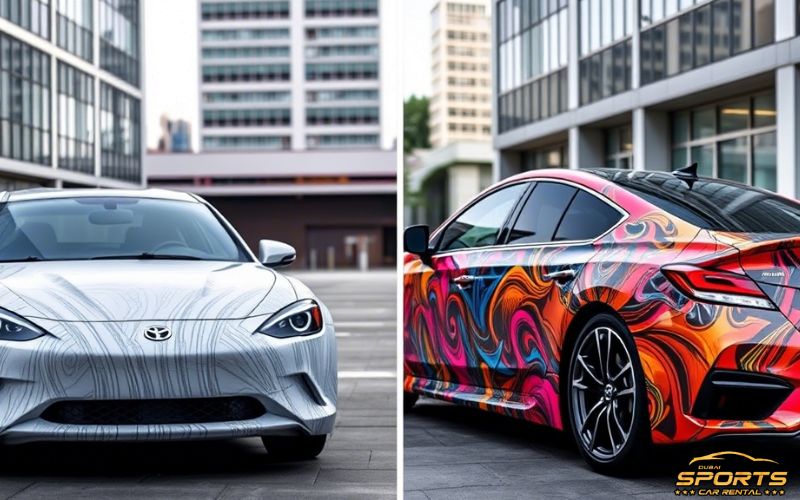
Standard vinyl wraps provide basic color changes at lower costs of AED 3,500–8,000 for sedans but sacrifice long-term performance. These films use 2–3 mil thickness PVC with minimal UV inhibitors, leading to faster fading in harsh climates like the UAE. Their limited conformability often causes air pockets on angular vehicles, requiring reinstallation within 2 to 3 years.
Premium wraps employ cast-vinyl technology with 5–8 mil thickness and ceramic coatings, maintaining gloss under extreme temperatures. Brands like 3M and Avery Dennison integrate nano-particles for scratch resistance, enabling self-repair of minor abrasions through heat activation.
The advanced adhesive systems in premium films allow seamless application on vehicles with complex geometries like BMW grilles or Tesla door handles. While initial costs are higher (AED 23,000+ for SUVs), the extended 10-year warranties and reduced maintenance justify the investment for luxury vehicles.
How does the complexity of a vehicle’s design affect the wrap cost?
The complexity of a vehicle’s design significantly influences car wrap costs due to variations in material usage, labor intensity, and technical challenges. Vehicles with intricate geometries, such as sharp angles, deep contours, or protruding features, require advanced installation techniques and precision, often increasing total expenses by 25% to 50% compared to simpler designs.
For example, wrapping a Mercedes G-Class with angular body panels and boxy proportions typically costs $5,000–$8,000 in the U.S. (AED 18,000–29,000 in the UAE), whereas smoother-bodied models like a Toyota Camry average $2,500–$4,000 (AED 9,000–15,000).
In the UAE, angular luxury SUVs like the Range Rover Sport incur AED 12,000–18,000 for full wraps, which is 35–40% higher than sedans, due to Dubai’s premium labor rates and extreme heat requiring temperature-resistant vinyl. On the other hand, simpler commercial vans in Abu Dhabi cost AED 5,000–8,000 for full wraps.

